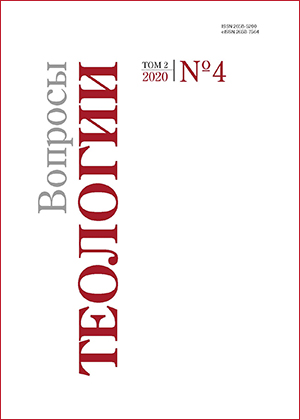The question of proving God’s existence
DOI:
https://doi.org/10.21638/spbu28.2020.405Abstract
The article deals with the approach to the question of proving the existence of God from the point of view of the concept of personality. Human existence is not limited to the concept of nature: individuality is not equal to personality. Attempts to reduce consciousness to brain function remain a hypothesis. The anthropological problem of man cannot be solved only within the framework of natural science. The phenomenological philosophy of the 20th century found a new way within the framework of philosophical anthropology, the key concept of which is the concept of personality. Man is constantly striving to transcend his nature in his life. The historical existence of the individual is realized through the transformation of the world in accordance with value attitudes. The very existence of religions is an answer to an individual’s query about the meaning of the fundamental facts of life: birth, death, and the existence of evil. Personality, personal being, is both a fact and a task for man: everything that exists must be personified. The dialogical aspect of being a person is considered. The personal existence of man also requires a personal God. The revelation of the personal God is a response to the human thirst for supernatural communication. The church acts as a unity of personalities in the super personality of God, transcending the boundary of earthly life. The very existence of the Christian Church is a personalistic analog of the proof of the existence of God.
Keywords:
proof of God’s existence, personality, personalism, values, culture, dialogue, freedom, church
Downloads
References
References
Downloads
Published
Issue
Section
License
Articles of "Issues of Theology" are open access distributed under the terms of the License Agreement with Saint Petersburg State University, which permits to the authors unrestricted distribution and self-archiving free of charge.




